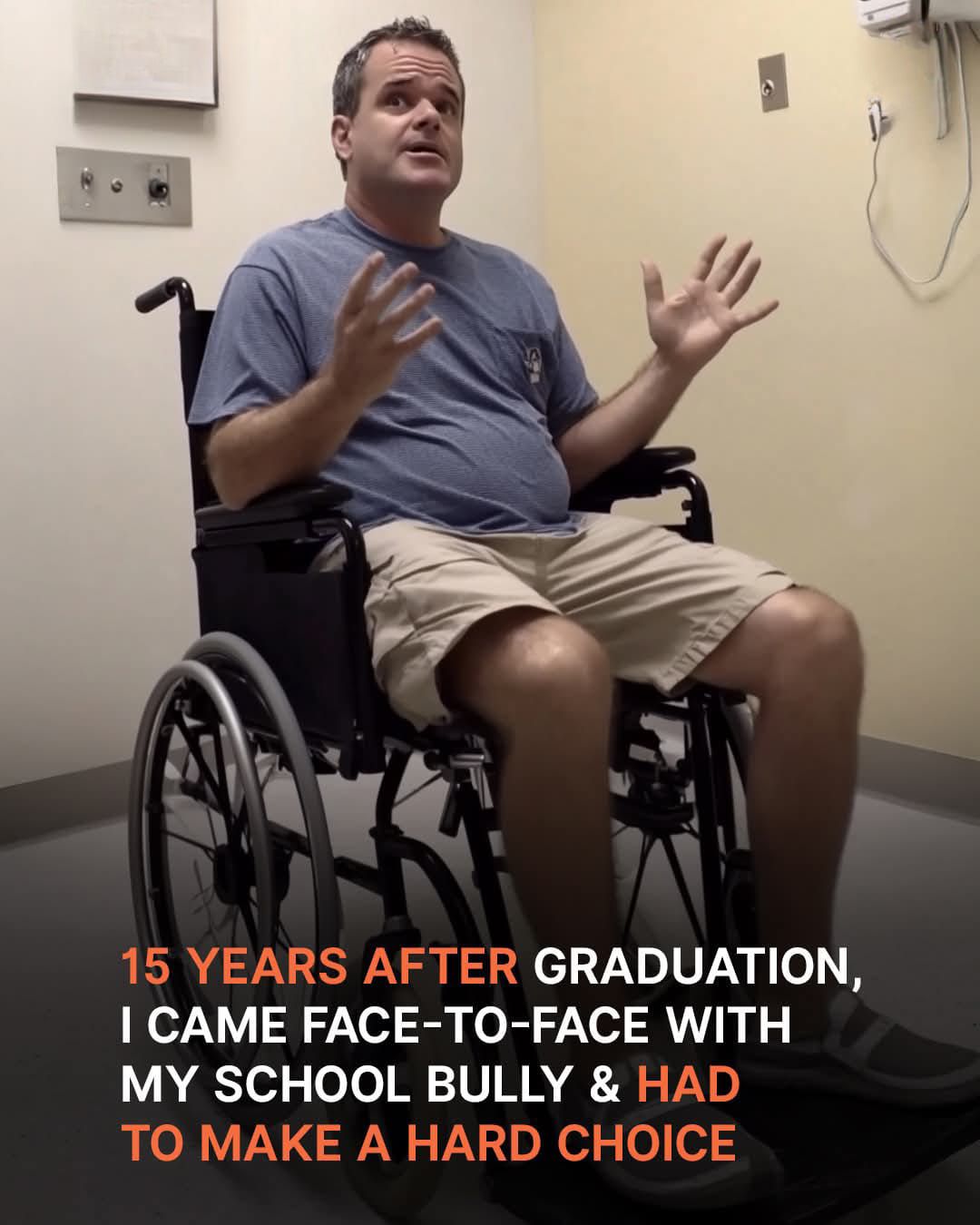For most of my life, I’ve worked hard to prove one thing—that I’m no different from anyone else.
As a physical therapist, I guide people through some of the hardest times in their lives. Recovery isn’t just about regaining strength; it’s about rebuilding confidence and rediscovering hope. I’ve worked with patients who’ve lost mobility, battled trauma, or struggled to accept new realities. And I understood that struggle intimately—because I’ve lived it myself.
I was born without legs.
Growing up, I faced stares, whispers, and isolation. Classmates didn’t see resilience—they saw “different.” But I refused to let that define me. I studied hard, pushed boundaries, and became someone others now call “inspiring.” Still, I carried the scars of those early years. Especially the ones left by him.
I hadn’t thought about Brian in years. Not until the morning I was called in to treat a last-minute patient. The assigned therapist had a personal emergency, and there was no patient file available. All I had was a name and a time slot.
The waiting area was quiet. I glanced out the window and saw a man in a wheelchair, hands resting on the wheels, his posture familiar in a way I couldn’t quite place.
“Hi, I’m Monica. Are you here for an appointment?” I asked as I stepped outside.
He turned—and everything stopped.
“Monica?” he said, stunned. “I didn’t know you were a therapist. I have so much I need to—”
“Don’t,” I interrupted, my voice sharper than I intended. My chest tightened as I walked away, trying to catch my breath.
Because that man… was Brian. My high school bully. The one who made my life miserable with cruel jokes, mocking questions, and endless reminders that I was “incomplete.”
He never laid a hand on me. He didn’t have to. His words were enough to isolate me. Because of him, I spent high school eating lunch alone in the library. I missed prom. I counted the days until graduation just so I could forget they all existed.
Now, here he was—vulnerable, unsure, and needing my help.
Later, as we sat face to face in the therapy room, Brian explained his story. A car accident. He’d fallen asleep at the wheel and crashed into a tree. Now, doctors said he may never walk again. He stared at the ground as he spoke, guilt radiating from him.
“I know I was awful to you,” he said quietly. “There’s no excuse. But I want to say I’m sorry.”
I looked at him, torn between past pain and present empathy. Part of me wanted to walk away. Let someone else treat him. Someone who hadn’t endured years of humiliation at his hands.
But another part—the stronger part—knew I had changed.
“I won’t refuse your treatment,” I said. “Not because I’ve forgotten what you did—but because I’m not like you. I want to help people heal, not hurt them.”
Brian blinked back tears. “I don’t know if I could be that forgiving,” he admitted.
“That’s why we’re different,” I replied. “You lost something recently. I was born this way. And I’ve spent a lifetime learning how to rise anyway.”
That day marked the beginning of something neither of us expected. I didn’t become his friend, but I became his guide in healing. I didn’t forget what he did, but I refused to let it define who I would be to him now.
Because empathy doesn’t mean erasing the past. It means choosing not to repeat it.
Sometimes, the most powerful choice we can make is to be kind—even when no one expects us to be.
If this story moved you, share it with someone who believes in second chances and quiet strength.

